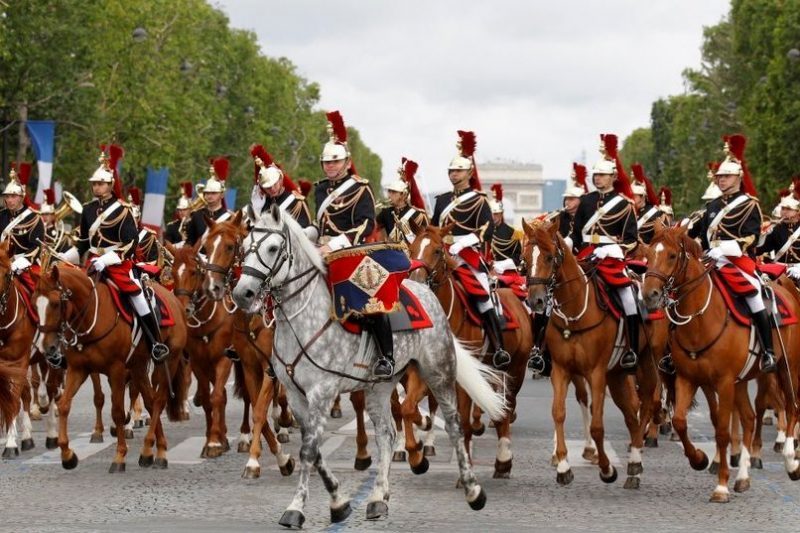According to a recently-leaked government document, the elite of the French army is targeted as an area where public money can be saved.
Every national armed service has its elite squads – the ones used for ceremonies designed to impress; the ones with a certain mystique surrounding them; the ones with the best-dressed and most well-behaved officers; the ones where money has always been no object.
In France, it’s the Garde Républicaine, or the Republican Guard. This special section is the one that’s always photographed leading the 14th of July parade down the Champs Elysées or forming guards of honour for the French president when he’s on tour or at home in France when welcoming a visiting foreign dignitary. Essentially, they’re a security unit of the French national Gendarmerie and their purpose from the time they were formed in 1848 has been to provide security in the Paris area. They’re charged, for example, with the security of diplomatic bags. All the main buildings of national importance are protected by them and their motorcycle unit is in charge of security for the annual Tour de France bicycle race.
The Republican Guard is one of the prestige symbols of the French Republic. It comprises two infantry regiments, one cavalry regiment (the last mounted cavalry regiment in the French Army), one army band and the French Army Choir. All in all, it employs a total of 2,859 men and women of military and civilian persuasion.
But all of this national prestige comes at a cost and that cost is estimated by the national bean-counters at the Cour des Comptes to be in the region of €280 million annually. In the context of a general review of security costs to national monuments, the Cour des Comptes says that significant reductions in spending are possible in the National Guard because “the missions of the Garde Républicaine have more to do with objectives of prestige rather than security needs.”These reductions, they say, would necessitate a revision of “honorary services” and looking at ways of assuring the security of the National Assembly and the Senate “at the lowest cost possible”, taking into account the framework of security forces already available at close hand or the possibilities of video surveillance.
Interior Minister Manuel Valls responded to the suggestions by saying that he would be “in favour” of a study on the “adoption of new means of protection of the national monuments”, all the while underlining the fact that these buildings are “places which are particularly sensitive with regard to multiple threats, the first amongst which being that of a terrorist attack.”
There were other recommendations too, such as tightening up on the manner in which security services are invoiced to the government and merging the Republican Guard’s army band with those of the CRS (riot police) and the Police de Paris.
For traditionalists, it all reads like a bit of a horror show. The current socialist government is under pressure to deliver on ways in which to cut costs and the Garde Républicaine is certainly a national luxury item that seems to be in their cross-hairs. They would, however, take care to read the motto of the Garde Républicaine which is: La Garde meurt mais ne se rend pas (“The guard dies but does not surrender”).





 Tootlafrance is Ireland’s fresh new eyes on France, bringing you the latest news, exclusive celebrity interviews, political analysis, cultural events, property news and, of course, travel features written by top Irish journalists.
Tootlafrance is Ireland’s fresh new eyes on France, bringing you the latest news, exclusive celebrity interviews, political analysis, cultural events, property news and, of course, travel features written by top Irish journalists.